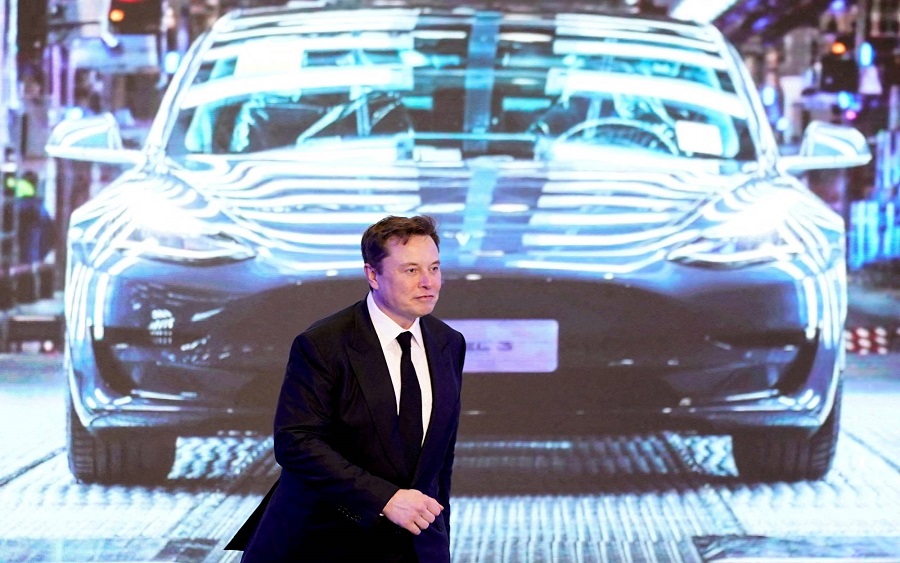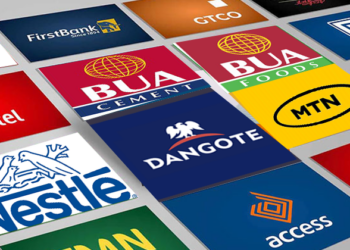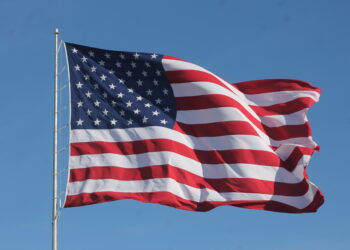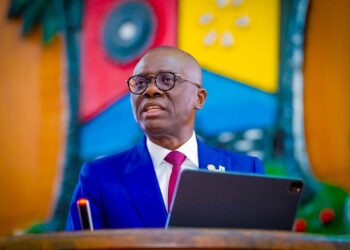Tesla cars are a status symbol. At least, that is what Aisha Usman, a Tesla car fan who dreams of owning her own Tesla one day, thinks.
Aisha told Nairametrics that for her, a Tesla car is not just a status symbol because of its high cost. Her reason is surprisingly quite thoughtful.
- “There are more expensive cars in the market, but I see Tesla cars as a status symbol because they are electric and anti-pollutant.
- In a country like Nigeria, the concept of electric cars is still not widely accepted. So, if you are driving one, it means you are more knowledgeable than others,” she said.
Electric car evolution: As Aisha rightly said, the majority of Nigeria’s population is still largely unaware of the electric vehicle revolution currently happening globally.
- Countries around the world have pledged to go carbon-neutral in a bid to mitigate climate change. Since 2008, Tesla has been making electric cars in line with this. And it’s not just Tesla; other car manufacturers like Ford Europe, Maserati, Bentley, Audi, General Motors, Mercedes Benz, and Volvo, have caught the electric vehicle bug as well.
- According to the International Energy Agency (IEA), Electric Vehicles (EVs) represented 9% of all passenger car sales in 2021. Also, sales more than doubled, hitting 6.6 million. By 2030, the Edison Electric Institute estimates 22 million electric cars will be on roads in the United States of America.
- September 2022 data from Statista shows that US-based Tesla reached a record 935,950 units sold globally in 2021 and has been steadily growing year-over-year as of Q2/2022, despite the global automotive semiconductor shortage.
Importing Tesla into Nigeria: To import a Tesla from the United States into Nigeria, the end user is better off using a vehicle importer with an active US-focused business in Nigeria to facilitate the process.
- The reason an importer is needed is that they have the necessary structure to enable the process. They are also familiar with the business terrain.
- If someone wants to import a Tesla into Nigeria, they need to understand the different Tesla models and the preferences they are on the lookout for. Mr Idowu, the chief executive officer of Lagos-based Mayfair Autos Limited, explained this better when he said:
- “It is depending on the year of the model you are looking at. First, you need to search for Tesla models that are available on the market. For instance, if you want a Tesla, you need to consider your colour preference, mileage capacity, model, the year it was manufactured and of course, the cost.
- “When these are known, the importer works out how to get your preference and in what locations to get the model and preferred Tesla. I usually ship from anywhere in the US to Baltimore, Maryland, USA. from that location, it is easier for me to ship down to Nigeria.”
The time factor to consider: Explaining further, Mr Idowu said shipping Tesla cars from Baltimore, Maryland, is preferable. According to him, shipping from Maryland is faster. So, he usually ships the Tesla from any other city in the US to Baltimore before shipping down to Nigeria. He said:
- “If I ship from California for instance, it will take me about 2 to 3 months thereabouts to get the vehicle down to Nigeria. However, I prefer Baltimore because their services are quicker and the vehicle can come into Nigeria faster. To enable an even quicker process for my clients, I usually start processing the clearance for vehicles before the shipment comes into Nigeria.
- “I also give room for delays because of the Nigerian factor which can arise from network issues and other delays at the ports. Ideally, the clearing process for the Tesla should take maybe three to five days, but delays could occur and the timing is extended to over seven days.”
Cost of importing a Tesla into Nigeria: The cost of importing a Tesla will mostly depend on the preference of the end user. Mr Idowu told Nairametrics that the cost varies according to the Tesla model picked by the client. He said anyone looking to buy a 2020 to 2022 Tesla model, should know that their prices are the same. He said:
- “A 2023 Tesla will be more expensive because it is the latest in design. The model will also play a role in determining the price of a Tesla. Tesla has various kinds of models, they are: Model 3, Model S, Model X and Model Y. The last 2020 Tesla Model S that I shipped in for a client earlier this year, cost $80,000 for the vehicle and N17.5 million for the clearing/processing when the vehicle got to Nigeria.
- “At the N750/$1 rate today, December 19, it will cost an end user about N78,875,000 to import a Tesla into Nigeria, inclusive of clearing costs at the port and charging infrastructure.”
It is important to note that the cost of an imported Tesla vehicle also covers the charging accessories the vehicle needs.
According to Mr Idowu, the clearing cost for the Tesla vehicle highlighted is expensive, however, other vehicle brands are more expensive to process when they arrive in the country. He provided some context with a Rolls Royce he imported recently. He said:
- “I recently imported a 2022 Rolls Royce Cullinan and I was given a quote of almost N100 million to clear the vehicle at the port and that is just for one car. I also recently imported three units of Lamborghini Urus and I paid N117 million for clearing them. Also, it cost N199 million to clear six units of G-wagon vehicles. These quotations are more expensive than the Tesla earlier cited.”
Likely challenges you may face: Sources at the National Automotive Design and Development Council (NADDC) told Nairametrics that Tesla vehicle importers will likely not encounter challenges when importing a Tesla into Nigeria, except when it comes to congestion at the country’s ports.
- Congestion at Lagos ports plays a role in the delay factor when it comes to the importation of Tesla vehicles. Nigerian car importers usually anticipate delays when running their business, so they add an extended period for clients before collection, to avoid being put under pressure as a result of wrong deadlines which are caused by delays at the ports.
- The sources at NADDC also confirm that the best way to reduce stress when importing a Tesla into the country is to use an active car importer who already understands the business and has the contacts to facilitate the process.
- While chatting with Nairametrics, Mr Idowu, the CEO of Mayfair Autos Limited, said his experienced team works together to ensure the smooth passage of vehicles into the country. This way, challenges are minimal because there is already a working structure to get things done.
- According to him, the only thing that the end user needs after importing a Tesla is to get a service provider to set the Tesla car up with charging infrastructure, and a direct link to a constant power supply.
End of the year price hike? According to Mr Idowu, importing a Tesla into Nigeria during the Christmas period does not mean a significant change in the price of the vehicle. He, however, spoke about the rise in tariffs by the Nigerian Customs Service officials. He said:
- “If you are importing a brand-new car, Nigerian Customs Service will charge 70% of the value of the brand-new car as a tariff. Meanwhile, if you are importing a fairly used car, the Nigerian Customs Service will charge 35% of the value of the car as a tariff.
- “For context, in 2021, we imported a 2020 vehicle. The cost of vehicle purchase and air freight to bring it into Nigeria costs between N130 to N135 million meanwhile, clearing the car from the port cost about N76 million. This challenge of high tariffs can be traced back to foundational and systemic challenges and failures.”
The downside to the Tesla market in Nigeria: A lot of Nigerians are still not so knowledgeable about electric cars like Tesla. So, bringing them into the country regularly for sale is something many vehicle importers try to avoid.
- According to Williams Uchendu, an Abuja-based car importer, his clients know little or nothing about electric vehicles. He told Nairametrics that for the time being, Nigerians will pick internal combustion engine (ICE) vehicles over Tesla because they understand the former more than the latter.
- Williams said bringing Tesla cars to the country for sale is the same thing as tying the money down. It is better to order it when a client expresses a desire to have it.
- Another challenge is the country’s power supply issues. If there is not enough power for households and businesses, why then should Nigerians be interested in replacing ICE vehicles with electric vehicles like Tesla? Jelani Aliyu, the Director General of the NADDC told Nairametrics in September 2022, that it is possible for Nigerians to embrace electric vehicles and when there is a massive acceptance of EVs and more Nigerians begin using EVs, the power supply ecosystem will improve.




















Nigeria dealers / agents in the US are known to profit on the transaction secretly by not passing tax discounts on electric vehicles (and other specific new vehicles) to the unsuspecting and unknowing Nigerian buyer – this could be as much as $15,000 in some cases….